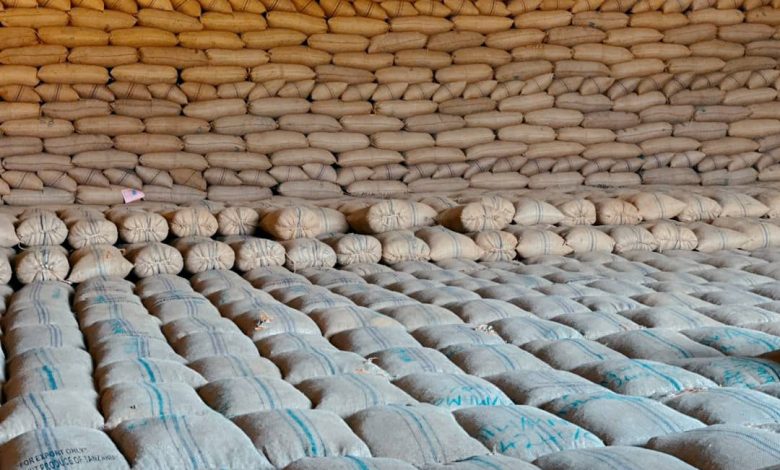Combating Cashew Pests and Diseases – A National Effort for Sustainable Yields
Attribution:
Prepared from the presentation “Visumbufu vya Zao la Korosho” by Ramadhan Kilewa, a Plant Pest Control Researcher and Pesticide Regulator at the Tanzania Plant Health and Pesticides Authority (TPHPA), delivered during a training session for farmers, extension officers, and pesticide applicators in Kibiti, Pwani Region, on 27–28 July 2023.
Introduction: A Strategic Response to Cashew Production Challenges
Cashew (korosho) is one of Tanzania’s most important export crops. However, its production is frequently threatened by a variety of pests and diseases. Recognizing this, the Tanzania Plant Health and Pesticides Authority (TPHPA) rolled out a comprehensive training session aimed at equipping farmers, agro-extension officers, and pesticide applicators with practical knowledge to identify and manage cashew crop threats effectively.
This feature distills the key insights from that training, spotlighting the pests, diseases, and recommended chemical controls for sustainable cashew production.
1. Insect Pests Affecting Cashew and Their Control
a) Wadudu Mafuta (Aphids)
Symptoms: Sap-sucking leading to stunted growth.
Control: Profenofos, Imidacloprid, Cypermethrin, Lambda-cyhalothrin
b) Vigung’ata (Mealybugs)
Symptoms: Cotton-like waxy deposits, weakening trees.
Control: Profenofos, Imidacloprid, Dimethoate
c) Vithiripi (Thrips)
Symptoms: Silvery leaf patches, early flower drop.
Control: Profenofos, Imidacloprid, Lambda-cyhalothrin, Cypermethrin
d) Mtoboa Mizizi (Root Borer)
Symptoms: Tunnel damage to root and trunk base.
Control: Chlorpyrifos or a mix of Chlorpyrifos and Cypermethrin
e) Chorachora (Leafminer)
Symptoms: White squiggly lines on leaves.
Control: Profenofos, Lambda-cyhalothrin, Imidacloprid
f) Mbu wa Mikorosho & Mbu wa Minazi (Mosquitoes of Cashew and Coconut)
Symptoms: Biting leaves and stems.
Control: Profenofos, Imidacloprid, Thiamethoxam, Cypermethrin, Lambda-cyhalothrin
g) Bito wa Kufyonza Bibo (Nut-Sucking Bugs)
Symptoms: Nut shriveling and discoloration.
Control: Dimethoate, Profenofos, Chlorpyrifos
h) Panzi wa Majani & Panzi (Leafhopper and General Grasshoppers)
Symptoms: Leaf chewing and defoliation.
Control: Profenofos, Imidacloprid, Lambda-cyhalothrin, Cypermethrin
i) Mchwa (Termites)
Symptoms: Structural damage to tree bases.
Control: Chlorpyrifos or mix of Cypermethrin + Chlorpyrifos
2. Fungal and Bacterial Diseases in Cashew
a) Ubwiri Unga (Powdery Mildew)
Control: Hexaconazole, Mancozeb, Triadimenol, Carbendazim, Tebuconazole
b) Mnyauko Bakteria (Bacterial Blight)
Control: Copper-based fungicides like Copper Oxychloride
c) Mnyauko wa Tawi (Dieback)
Control: Triadimenol, Carbendazim, Copper compounds
d) Mnyauko wa Majani na Korosho (Leaf and Nut Blight)
Control: Triadimenol, Triadimefon, Carbendazim
e) Kutu Nyekundu (Red Rust / Alga Spot)
Control: Triadimefon + Carbendazim
f) Chule (Anthracnose)
Control: Chlorothalonil, Mancozeb, Copper Oxychloride
g) Homa ya Shina (Gummosis)
Control: Copper Oxychloride
3. Weed Management in Cashew Plantations
Proper weed management is critical for healthy cashew development. The training noted herbicide categories effective for:
- Grasses (Magugu ya Nyasi)
- Broadleaf Weeds (Magugu Majani Mapana)
- Sedges (Magugu Ndago)
- Parasitic Weeds (Magugu Tegemezi)
Why This Matters
Effective pest and disease management in cashew farming directly correlates with improved yield, farmer income, and Tanzania’s export strength. This training effort by TPHPA represents a proactive, science-based approach that empowers frontline agricultural stakeholders with both knowledge and tools.
As emphasized by Ramadhan Kilewa, continuous learning and adherence to safe pesticide practices are essential for sustainable agriculture and environmental health.
Call to Action
Stakeholders in Tanzania’s agricultural ecosystem—including policymakers, cooperatives, and NGOs—should invest in scaling such training to all major cashew-producing zones. Beyond control, future research must prioritize pest resistance, organic alternatives, and climate-adaptive strategies for resilient farming.
The trainer for the cashew pest and disease management session is:
Name: Ramadhan Kilewa
Title: Mtafiti wa Kudhibiti Visumbufu vya Mimea na Mdhibiti wa Viuatilifu
Organization: Tanzania Plant Health and Pesticides Authority (TPHPA)
Contact Number: +2550755 476 848
